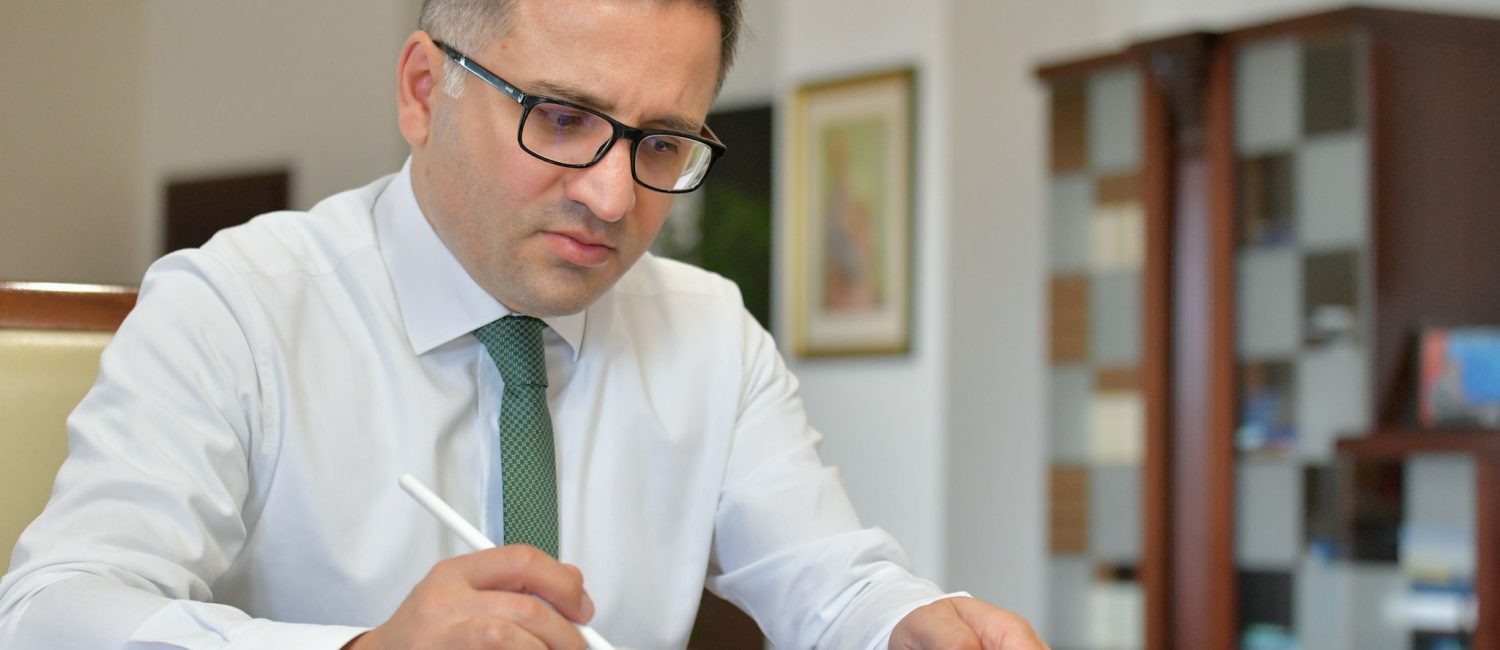25th October 2022, Skopje – Budget deficit will continue reducing in the 2023 Budget as well, and implementation of gradual fiscal consolidation continues third year in a row already following the onset of the COVID-19 induced crisis. Prior debts falling due in 2023 amount to around EUR 800 million, EUR 450 million out of which on the basis of the Eurobond issued in 2016. On the medium term, several barriers remain to be overcome in terms of financing the arrears, above all those accumulated during the COVID-19 crisis. However, with a moderate approach and the mix of savings and conducting adequate policies to stimulate growth and increase revenues, we will surmount them as well, Minister of Finance, Fatmir Besimi, wrote in his latest column.

“Prior debts falling due in 2023 on the basis of principal alone amount to around EUR 800 million, EUR 450 million out of which on the basis of the Eurobond issued in 2016. Interest falling due next year amounts to around EUR 240 million, or both debt and interest falling due exceed billion euros. Still, taking into account all measures planned for the fiscal consolidation, we remain on the path to gradual reduction of the deficit. In line with next year’s Budget, fiscal deficit gradually narrows so as to respond to the medium-term targets. Next year’s budget deficit is expected to decline in relation to this year, hence we continue reducing the deficit third year in a row already following 2020, i.e. after the COVID-19 crisis”, Besimi wrote.
He emphasized the implementation of gradual fiscal consolidation, which is to underpin the economic growth. Mixed measures include: I. improved budget revenue collection by enhancing the administrative capacities and improving the services of PRO and the Customs Administration, measures aimed at reducing the grey economy and tax reform, II. reducing and restructuring budget expenditures, reducing the current expenditures, greater support to the private sector, support to innovations and boosted competitiveness, revision of methodologies for transfers and subsidies and III. changes in the sources of financing the budget deficit, rescheduling the public debt, greater diversification of the sources of financing the deficit, as well as financing and implementing certain projects through public-private partnerships, Development Fund for Strategic Investments and mobilization of financial capital from the international financial institutions and the private sector.
“As regards the first two aspects, the Government has adopted Fiscal Consolidation and Economic Growth Support Plan. It comprises three parts: consolidation of expenditures of government institutions, improved collection of revenues and measures and recommendations for public enterprises and state-owned companies. Moreover, it also includes the concept of consistency and optimization of economic policies and reforms contributing to economic growth, with performance indicators for the budget programs in relation to the priority economic policies and reforms – referred to as „value for money“ concept envisaged in the Budget. With respect to the third aspect, adequate mechanisms are envisaged within the Growth Acceleration Plan, which is aimed at economic recovery and accelerated economic growth to 5% in average in the coming five years”, Besimi wrote.
















